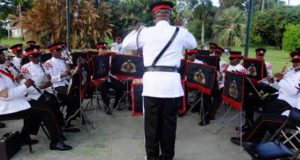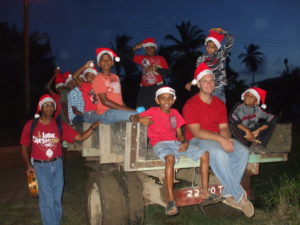 “Silent night, holy night
“Silent night, holy night
All is calm and all is bright
Round yon virgin, mother and child
Holy infant, so tender and mild
Sleep in heavenly peace.”
That is how it always started. I remember it like it was just yesterday. The first time the carollers visited our small home. They were from the church my father attended and it was Christmas Eve night, mommy was in the kitchen hurriedly trying to finish baking a cake so the carollers would be able to indulge. It is one of my fondest memories of Christmas as a child, because I remember being immensely in awe of this group of people just singing at our doorstep.
My sisters and I crouched in front of the doorway with our father as we listened to the La Grange Fellowship Church’s choir, led by Uncle Aker (only name I can remember), belting out Christmas carols like “Jingle Bells” and “Oh Holy Night”.
Looking forward to the carollers became a tradition for the next few years. It involved my mother working herself in the kitchen earlier than normal so that she could have cake on the table when the carollers come around 17:00h. She would work harder earlier so that she could join us as a family unit to get into the spirit. It was the one time for the holiday season where we all felt at peace with ourselves as well as our surroundings. 
I was too young to understand what I was feeling, but now looking back at the experience, I am grateful to have witnessed and experienced that peace. But that peace was short-lived as the carollers stopped coming. They stopped visiting after my father left our home and after a few years, Uncle Aker migrated from Guyana and carolling in Independence Street, La Grange on the West Bank of Demerara stopped altogether.
After a few years, the church would attempt to resurrect carolling, but that only lasted a short while.
Generally, throughout the country and further afield, the tradition of carolling is dying or has died altogether. I would have had the opportunity to spend a few Christmases in Trinidad where they have their unique form of carolling in the form of Soca Parang. Because of their rich musical culture instead of the traditional Christmas carols, they come up with unique songs speaking to the culture of the Trinidadian spirit.
However, they also have the traditional carolling since it is a major focus of the Presbyterian Church. Back in Guyana, the art of carolling is rapidly dying out, since most of the younger generation prefer the party scene as opposed to house-to-house carolling.
(Times Sunday Magazine)



